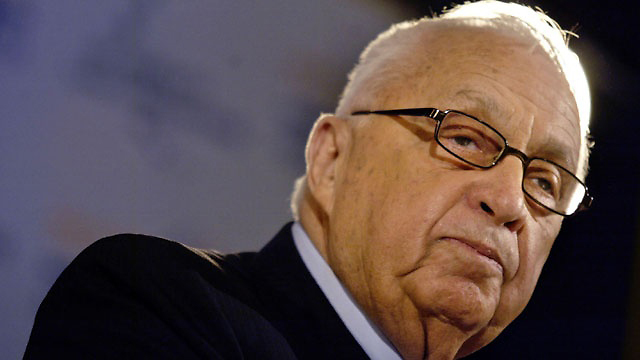

In Israel, some campaign pledges are more equal than others
Opinion: Very few substantial policy decisions during Israel's short history were in line with promises made during election campaigns; these assurances do not carry much weight, and the vows made by Netanyahu in recent weeks should be seen in that light
Campaign promises are less of a testament of the candidates' intentions and more about what they think of their voting public.
"I promised, but I never promised to keep my promise," was a great line attributed to the late Levi Eshkol, Israel's third prime minister.
'What you see from here you don't see from there,” said Ariel Sharon, another late prime minister explaining his ideological u-turns.
In fact, very few substantial policy decisions during Israel's short history were in line with promises made during election campaigns. Some were the exact opposite, including the 1979 peace deal with Egypt, the two Lebanon wars of 1982 and 2006, the Oslo Accords of the early 1990s and the 2005 withdrawal from the Gaza Strip.
All were Israeli initiatives taken by governments; none were part of party platforms or campaigns.
Not all political leaders lie and not all voters are fools - the rules of the game are well known to both sides. Voters vote but governments decide.
Some major decisions were a result of campaign promises: In 1992, then-prime minister Yitzhak Rabin promised to bring peace. He intended to reach an agreement with Syria but when it became apparent such a deal would not be possible, he turned his attention to the conflict with the Palestinians and the Oslo Accords were signed.
Both Ehud Barak and Benjamin Netanyahu, competing for the premiership in 1999, promised to pull the IDF out of southern Lebanon after over a decade of bloody occupation.
Barak won and within one year completed the pullback. The troops were home but the security risk from Israel's northern neighbor remained.
When he was elected in 1996, Netanyahu promised voters he would not nix the Oslo Accords. That was one promised he had kept. At least until this round of elections.
So, campaign promises do carry weight but not much of it, so the promises made by the prime minister in the past weeks in his efforts to be re-elected, should be seen in that light.
Here are ust a couple of those promises made for this campaign:
A U.S.-Israel mutual defense treaty: A Netanyahu promise that runs contrary to the interests of both the United States and Israel.
If it were signed, America would find itself embroiled in a legal, political and military mess.
While Israel would find its freedom to operate in the Mideast curtailed, its Dimona nuclear reactor in danger and its pledge - oft repeated by all its leaders - never to rely on others for defense violated.
When President Bill Clinton offered such a pact during his term in office, it was Netanyahu who politely declined.
Extending Israeli sovereignty over the Jordan Valley: This will change little on the ground there but will harm security in the rest of the West Bank, which explains why in his 10-year term, so far, Netanyahu has refrained from doing just that.
Martin Indyk, Obama's peace envoy was right when he tweeted Saturday that the prime minister was amenable to having American troops on the banks of the Jordan River during negotiations in 2013-2014, while his current opponent and his then-defense minister Moshe Ya'alon stood firmly against such a move.
The truth: Bibi encouraged and showed considerable interest in the Allen Plan and never said annexation was necessary. Blue and White’s Bogie Ya’alon, as Bibi’s Defense Minister, vetoed the Allen Plan, NOT Bibi. Bogie also forbad Gantz from discussing the plan with US officials. https://t.co/wyhBSqR6am
— Martin Indyk (@Martin_Indyk) September 14, 2019
War with Gaza is a real possibility. The IDF is convinced the effectiveness of its bombs has dramatically improved since the 2014 conflict and that the Air Force alone could take out Hamas' leadership at a low cost to Israeli troops.
There are only two problems with that position:
The first is a lack of public appetite for another war. Likud voters prefer aggressive rhetoric to actual fighting, especially if it comes with the funerals of dead IDF soldiers.
The second is Netanyahu's desire to keep Hamas in control of Gaza and the Palestinian Authority away from the coastal enclave.
Some may see the prime minister's flurry of false promises as a sign he is panicking. They would be wrong.
The energy invested by our leader is the point, not the substance.
Netanyahu entices his voters with a heady mix of two cups of anxiety, one cup of incitement and one cup of euphoria.
The prime minister recently said publicly that in 2011 he was prepared to launch an attack on Iran's nuclear facilities.
"Why didn't you?" he was asked.
"I didn't have the cabinet votes," he replied.
This time round, if his dream cabinet is formed - one that can provide immunity from prosecution on the three corruption charges pending against him, and includes people from the far-right – who will vote to stop him?

















